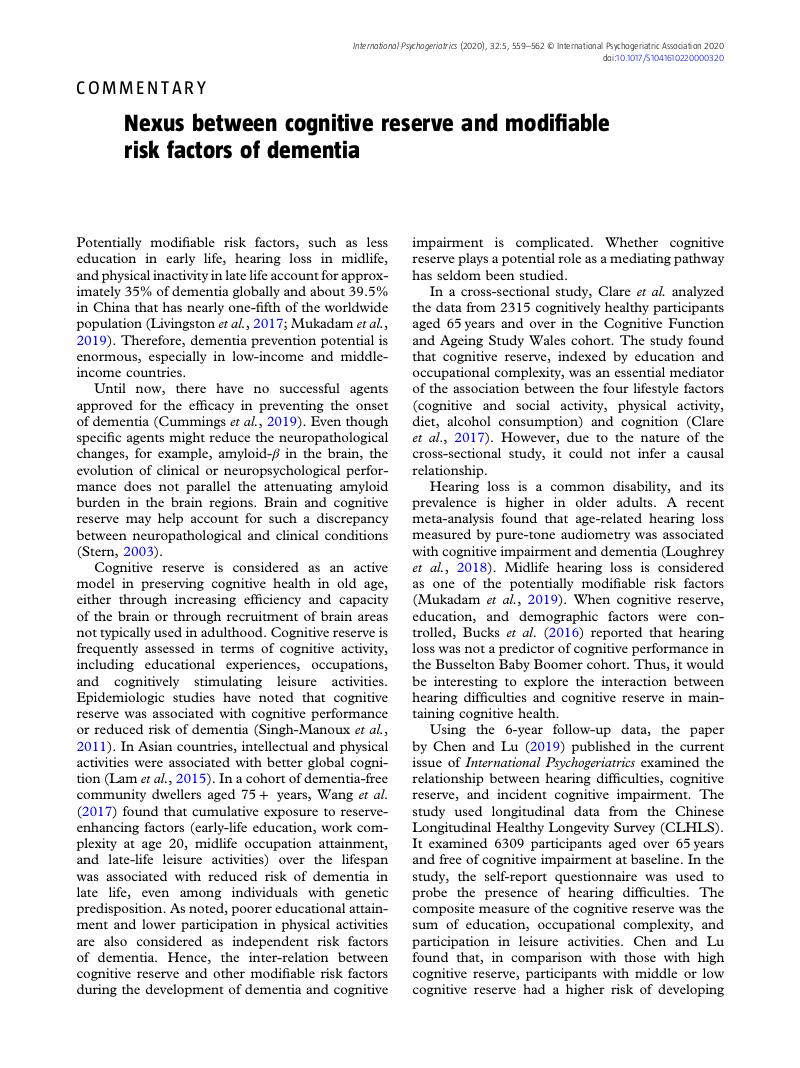Crossref Citations
This article has been cited by the following publications. This list is generated based on data provided by Crossref.
Fan, Zili
Lv, Xiaozhen
Tu, Lihui
Zhang, Ming
Yu, Xin
and
Wang, Huali
2021.
Reduced social activities and networks, but not social support, are associated with cognitive decline among older chinese adults: A prospective study.
Social Science & Medicine,
Vol. 289,
Issue. ,
p.
114423.
Wang, Huali
2022.
Wisdom: a potential ecological domain of mental health in old age.
International Psychogeriatrics,
Vol. 34,
Issue. 3,
p.
209.
Wang, Huali
Wang, Tao
Xiao, Shifu
and
Yu, Xin
2022.
Alzheimer's Disease Drug Development.
p.
275.
Wang, Huali
2022.
Wisdom in healthy aging research: starting from measurement.
International Psychogeriatrics,
Vol. 34,
Issue. 7,
p.
593.
Fekete, Mónika
Lehoczki, Andrea
Tarantini, Stefano
Fazekas-Pongor, Vince
Csípő, Tamás
Csizmadia, Zoltán
and
Varga, János Tamás
2023.
Improving Cognitive Function with Nutritional Supplements in Aging: A Comprehensive Narrative Review of Clinical Studies Investigating the Effects of Vitamins, Minerals, Antioxidants, and Other Dietary Supplements.
Nutrients,
Vol. 15,
Issue. 24,
p.
5116.





